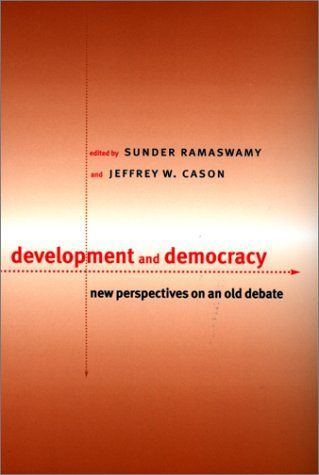
Development and Democracy New Perspectives on an Old Debate
The relationship between development and democracy, one of the most studied themes in the social sciences, is also one of the most elusive and most vexing. Central to this study are two questions: Is liberal democracy a prerequisite for economic development? Or is economic development a prerequisite for liberal democracy? Political scientists and economists have offered a variety of answers to these questions, emphasizing such issues as institutionalization, government policy, political parties, and economic development strategies. Too often, though, political scientists analyze development with a limited understanding of economics, while economists advocate particular economic policies with no regard for the politics of implementing them. As the real world shows, and as this book demonstrates, economics and politics are intimately connected and must be understood in relation to one another. Development and Democracy , offering a mix of theoretical and empirical essays, brings together scholars from a variety of disciplines and area specializations (Latin America, South Asia, North Africa, China, Russia). The editors provide a broad general introduction to the topic. Essays in the first two sections offer overviews of key issues and assumptions in the field, and look particularly at the roles of institutions and civic participation in economic development. Essays in the final two sections examine challenges to achieving stable democracies and economies (such as ethnonationalism and violence), and use case studies to situate these themes in a global context. Contributors -- Amy L. Chua, David Deese, Jacques deLisle, Julio Gonzalez, Jonathan Isham, Satu Kaehkoenen, Thomas Kelly, Deepak Lal, Chris Magee, Stephen P. Magee, Timothy J. Power, William Reno, Gregory White, Shiping Zheng, and the editors